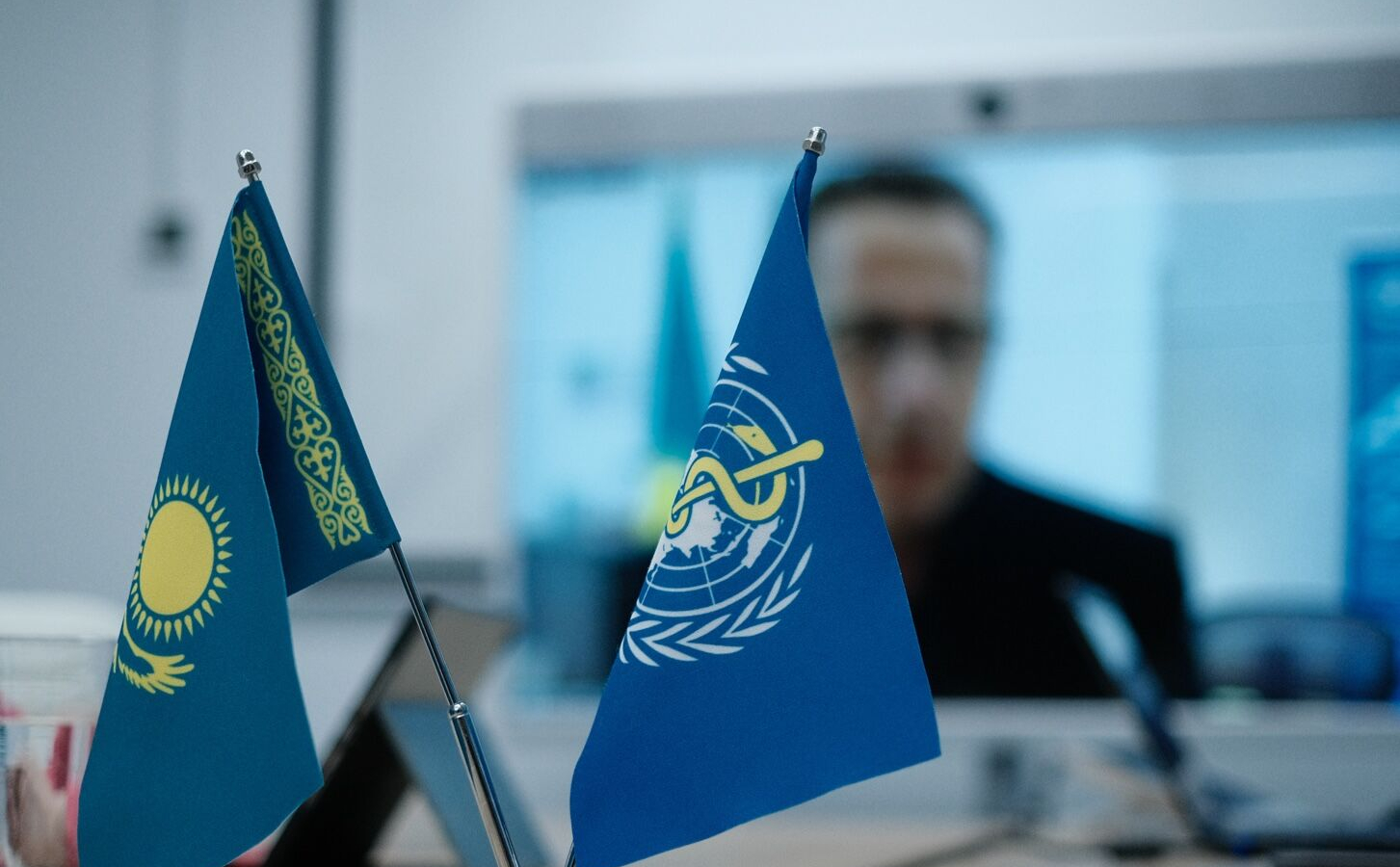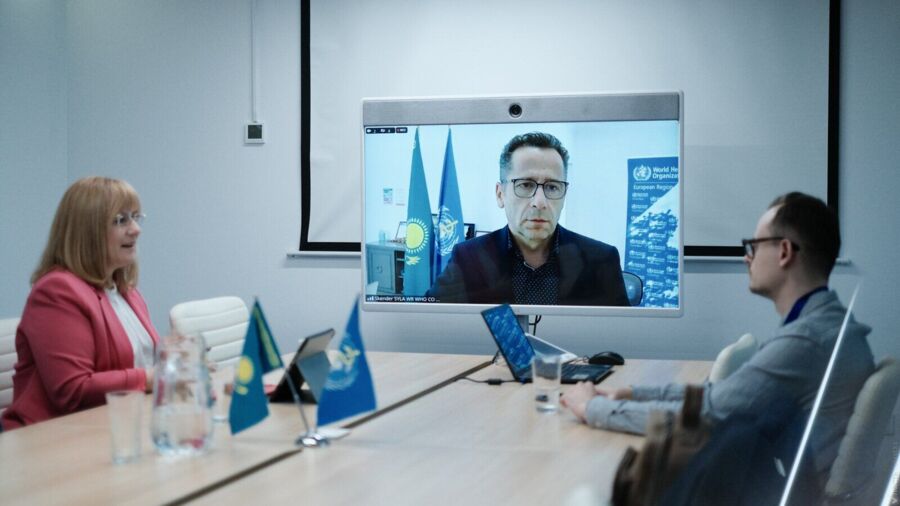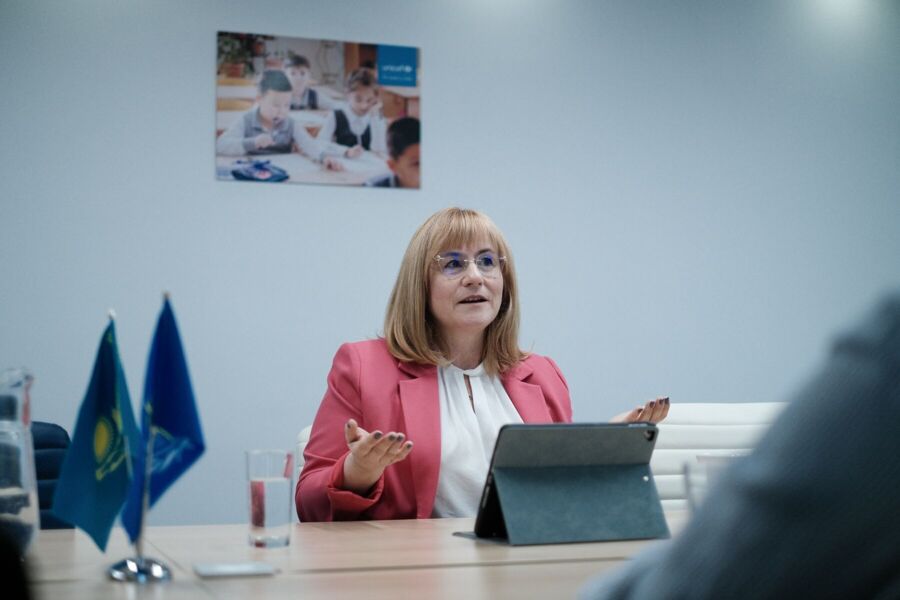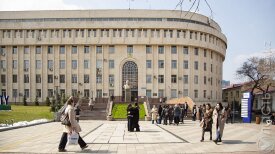The COVID-19 pandemic was a turning point for the World Health Organization (WHO) because it accelerated internal reforms and prioritized emergency preparedness. Besides health threats, the organization is bracing for another crisis: a potential US withdrawal. In such an instance, the WHO could, at once, lose its largest budget contributor.
The organization hopes to continue to play a key role in global health and to expand its activities. Kazakhstan's experience in primary health care will be important for this.
Vlast spoke with Skender Syla, the head of the WHO country office in Kazakhstan, and with Melitta Jakab, the head of the WHO European Centre for Primary Health Care. In an interview, they talk about the future of the organization, the importance of Kazakhstan for its activities, and the state of the country’s medical system.
Читайте этот материал на русском.
What was the main lesson that the WHO learned from the pandemic?
Syla: The COVID-19 pandemic has shown very clearly that when health is at risk, everything is at risk.
The COVID-19 pandemic also accelerated reforms within the WHO, making it more focused on emergency preparedness and response. In 2021, we created a hub for Pandemic and Epidemic Intelligence, which is based in Berlin, Germany. The main aim of this hub is to improve global surveillance and data sharing.
Our regional and country offices have been strengthened and expanded to improve localized response capabilities, here in Kazakhstan as well.
We also established a system called One Health Approach that brings together the ministries of health, environment, and agriculture in order to be ready and to detect in time any emerging disease that can pose a threat to humans.
Jakab: During the pandemic we realized that certain people are affected directly in terms of health, others through social issues, and others via mental health consequences.
Imagine you have an older person living alone in a flat who cannot leave her house, has no food, and then becomes extremely depressed and isolated. That’s equally as bad as being exposed to the virus. This has created a movement towards a more holistic approach to health that integrates physical health, mental health, and social well-being.
Kazakhstan was actually ahead of its time when it, in 2018, introduced psychologists and social workers within primary health care teams. This is a new, multidisciplinary model that not many European countries have adopted. This model proved extremely useful during the pandemic.
The WHO is now facing another major crisis, this time a financial one. How will the prospective withdrawal of the US reshape the organization? Will it further divide other countries, especially in terms of research and medical development?
Syla: The US has been a major contributor to the WHO's work over the past 75 years – it provided about 18% of the budget – and we appreciate its contribution towards a healthier and safer world.
But we also have other major financial contributors, both through regular budget contributions (based on economic development and population size) and voluntary contributions: the European Union, the United Kingdom, China, Japan, Canada, and others. The overall annual budget of the WHO stands at about $3 billion.
Yes, the US administration announced the intention to withdraw from the WHO, but the world is still there. Disasters and emergencies will still happen. New diseases will emerge and spread. That's why the world needs us today more than ever.
The global health architecture, through the coordinating role of the WHO, should be further strengthened. While countries can develop medicines and vaccines independently, cooperation makes the process more efficient. The WHO provides guidelines, facilitates research, collaboration and ensures equitable access to health products.
The COVID-19 pandemic showed that when one country is at risk, every country might be at risk. That's why it's important to share medicines and vaccines, as well as other equipment, with other countries.
Do you expect the fragmentation of the organization? Could certain blocs of countries shift their own health policies?
Jakab: Besides regional initiatives, we also have sub-regional ones. And in our view these initiatives strengthen our work.
Groups like the Organization of Turkic States and the CIS Ministerial Council for Health come together because they have similar health systems and similar problems. The governments consider it useful to include health as part of that subregional cooperation, whether towards security or economic development.
Could other WHO members choose to withdraw or perhaps reduce their funding to the organization?
Syla: When the WHO was established, the US was the only country who reserved its right to withdraw. Other member states can also choose to reduce financing or stop financing. But they do not have a withdrawal clause.
I'm quite optimistic that member states and other organizations would understand the importance of our work and ensure its continuity through sustainable financing.
Do you see any inclination from China or other major countries—particularly European ones—to assume a leading role in the organization and potentially supplant the US?
Jakab: China has always played an important role in global health. The Health Silk Road is part of their Belt and Road initiative. They're investing in road safety in Central Asia. China has also supported pandemic efforts, deployed medicines, provided remote healthcare, digital tools, etc.
We welcome an increased role from China. But there is no other player that could perhaps take the role of the US. In global health, we cannot be dependent on one country. It’s an effort that requires a multilateral response. If one country is vulnerable, we are all vulnerable. So this is why we really believe that it is necessary for us to work with all countries in a multilateral fashion.
Of course, some countries will have a leading role. But everybody's contribution matters.
The WHO is the only institution that provides a neutral platform to host all these countries and all these conversations. We bring science to the table.
What are your current plans? Will your global–and Kazakhstan-specific– activities have to shrink?
Jakab: We are now reviewing our global portfolio as well as within the WHO Regional Office for Europe. Our goal is to make sure that we are as efficient as possible.
We will have to deprioritize some of the activities for which funding was cut. We hope that we will continue to deliver in some areas, though with fewer resources.
We will do everything in our power to ensure fair and equitable access to medicines, vaccines, and other medical products in close collaboration with member states and other partners.
Syla: The WHO architecture is planned to establish a presence in-country based on the epidemiological situation, on economic development and poverty line, and on the fragility of health systems.
While our “category A”, high-GDP countries [could need our presence less], our “category D and E” countries might need our substantial presence, which the WHO is planning to strengthen.
Jakab: In Kazakhstan, we are not planning to reduce the scope of our work. We are in a fortunate situation, and we hope that it will continue in the future, because Central Asia remains an important priority in our regional office.
Kazakhstan's commitment to multilateralism and to hosting more global meetings allows us to continue to expand and do good work.
What precise meaning does Kazakhstan have for your organization?
Jakab: Our local office was established about 10 years ago. It's an outpost of the WHO Regional Office for Europe. That’s 53 countries where we work to strengthen primary health care.
Kazakhstan is considered to be a global leader on championing primary health care as well as universal health coverage.
We have two very innovative projects together with Kazakhstan, and these wouldn't have been possible without Kazakhstan's presence.
First, the WHO primary health care demonstration platforms. Here, we showcase well-functioning primary health care in practice, and we launched the first such demonstration platform in Almaty region, in Esik, which is a semi-rural area.
We host representatives from other countries, facilitate an exchange with policy-makers at the national and regional level, and then we take them to these facilities so that they can see things in action at the front line.
Primary health care is different in every country, depending on its history, its financing, its culture; there are no universal solutions.
Everybody is interested in Kazakhstan's multidisciplinary model of primary health care, which incorporates psychologists and social workers.
Second, we supported a talk show series on primary health care to connect decision-makers from the ministries with local governments and municipalities, and with health care facilities. We now have a network of 8,000 people from Europe who are part of our network. We're hosting them from here in Kazakhstan.
Will Kazakhstan’s role in the WHO also mean that it could increase its contributions to the organization?
Jakab: Kazakhstan is the eighth-largest donor for the WHO from the European region for 2024-2025.
Our feeling is that Kazakhstan is committed to multilateralism and continuing to expand all its efforts, not just in health, but its contributions to the United Nations system as a whole.
Syla: Kazakhstan showed a willingness to increase the percentage of its contribution.
Kazakhstan is also willing to support the creation of a global coalition of primary health care.
While Kazakhstan contributes to our budget, we also bring back benefits to the country, for example through a $20 million pandemic relief package for the next three years.
These funds will be used to bolster the country's public health infrastructure, improve epidemiological surveillance, and strengthen border control measures. It will also support the modernization of laboratory safety and rapid detection response.
How would you rate Kazakhstan’s healthcare policy? How well did it cope with the recent pandemic?
Jakab: What we see in Kazakhstan is a strong commitment to improving the health and well-being of the people. The coverage rate of essential services in Kazakhstan has increased significantly over the past two decades and now it has reached European levels.
Rural health care is being strengthened through mobile teams, so that people don't have to travel much.
We see an extremely strong regulatory function. Minister Akmaral Alnazarova announced an initiative to improve nutrition in schools.
There have been significant improvements in life expectancy, as well as reducing infant and maternal mortality rate.
Premature deaths, such as early deaths from cardiovascular disease, or various chronic conditions and non-communicable diseases affect the working population in Central Asia. These deaths were extremely high, especially among men. Kazakhstan is one of only nine countries that has achieved its target on reducing this death rate ahead of time.
Challenges still exist. Climate change, for example, is increasingly affecting health, from floods to forest fires.
Syla: In the event of future public health emergencies or pandemics, Kazakhstan’s authorities are willing to cooperate with the WHO and other regional organizations.
The government is ready to invest in health care. That’s not just the ministry of health, but also the ministry of finance and other agencies.
Kazakhstan worked through the COVID-19 pandemic and strengthened the health system, in terms of preparedness, infection prevention, and control.
In March, we organized a training in Shymkent on the shipment of contagious laboratory materials. We invited international experts from all regions to share their know-how. We also work to create centers of excellence in Kazakhstan regarding infection prevention and control.
If we look at the numbers, do you trust Kazakhstan’s data? For instance, there is a measles outbreak and yet the government says the level of vaccination is at its highest.
Syla: Measles is a very complex case because it’s the most contagious disease: up to 9 in 10 people who are not immune to measles and come in close contact with an infected person will definitely become infected.
The immunity gap widened during the COVID-19 pandemic. Fear and misperception about the disease led to people avoiding vaccination for their children. Misinformation about vaccines spreads rapidly.
The situation is more complex than just having reliable data. We must ensure a high level of immunization against measles in every community, in every district, in every village.
The government also acknowledged these challenges and we are working on a daily basis to improve the accuracy of vaccination reporting by strengthening data collection and surveillance.
Поддержите журналистику, которой доверяют.










